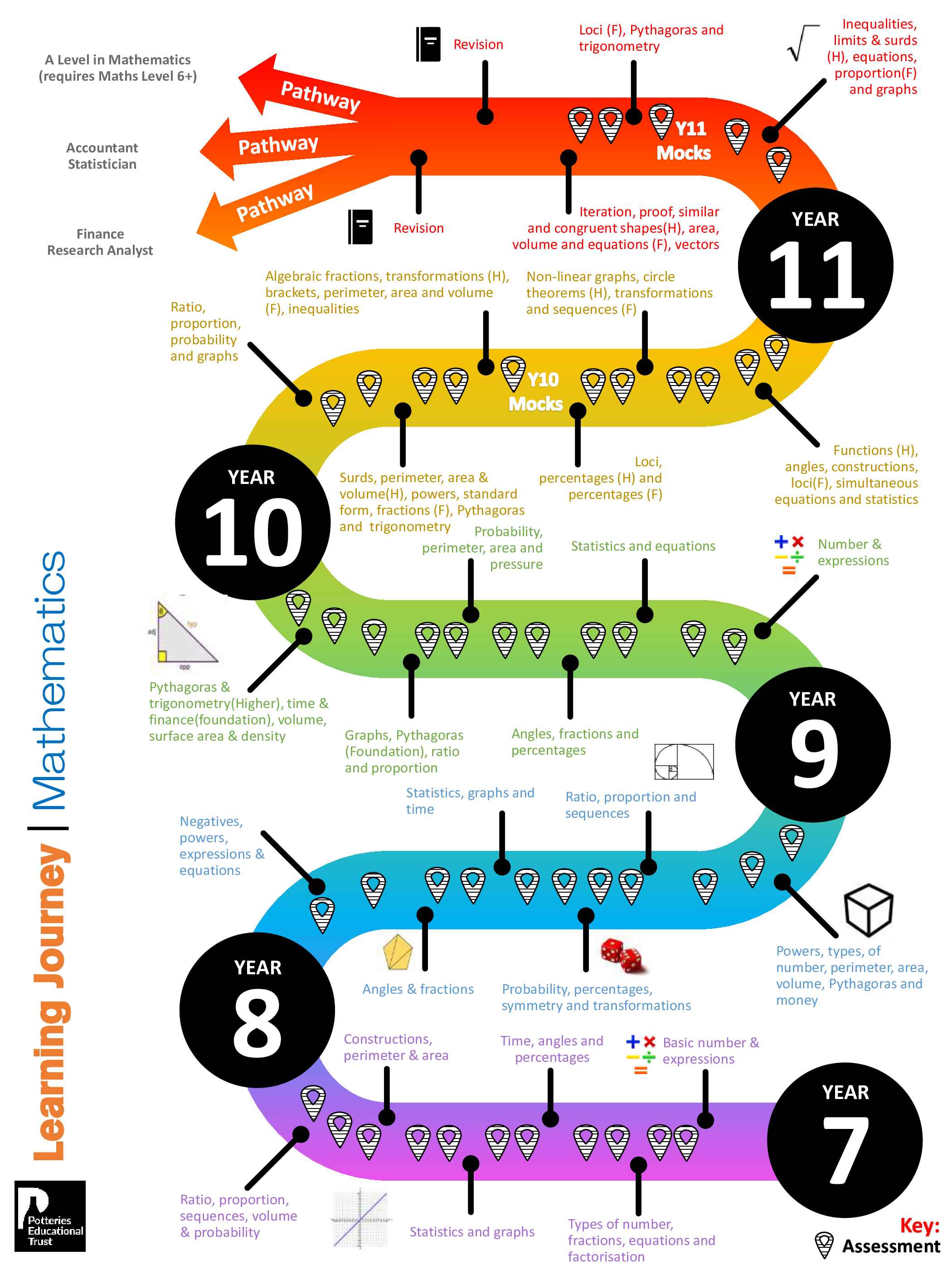Curriculum
Mathematics Department
Mathematics Faculty
Director of Teaching and Learning:
Mrs C Mickleburgh
EXAMINATION BOARD
-
Mathematics is a creative and highly inter-connected discipline that has been developed over centuries, providing the solution to some of history’s most intriguing problems. It is essential to everyday life, critical to science, technology, and engineering, and necessary for financial literacy and most forms of employment. A high-quality mathematics education therefore provides a foundation for understanding the world, the ability to reason mathematically, an appreciation of the beauty and power of mathematics and a sense of enjoyment and curiosity about the subject.
The national curriculum for Mathematics aims to ensure that all pupils:
- become fluent in the fundamentals of mathematics, including through varied and frequent practice with increasingly complex problems over time, so that pupils develop conceptual understanding and the ability to recall and apply knowledge rapidly and accurately
- reason mathematically by following a line of enquiry, conjecturing relationships and generalisations and developing an argument, justification or proof using mathematical language
- can solve problems by applying their mathematics to a variety of routine and non-routine problems with increasing sophistication, including breaking down problems into a series of simpler steps and persevering in seeking solutions
With these aims in mind, the mathematics department at Moorside aims to:- enable every pupil to develop within his/her capabilities, the mathematical skills and understanding required for adult life and for employment
- provide every pupil with the Mathematics needed for the study of other subjects
- encourage every pupil to develop his/her appreciation and enjoyment of Mathematics itself
- develop a realisation of the role which Mathematics has played, is playing and will play in development of science, technology and our civilisation
- ensure that every pupil is aware that Mathematics provides a powerful tool for organising, communicating and manipulating information
- provide a foundation for Further Mathematical studies
- develop the ability to apply knowledge and skills to familiar and new situations across the curriculum
- develop the ability to organise and solve problems in a logical fashion and interpret the results in an appropriate manner
-
Introducing Sparx Homework
Sparx personalises each child’s homework, creating a weekly set of questions tailored to their level of understanding and learning pace. The questions are designed to be achievable whilst offering the stretch that learners need to make progress.
Each week, topics are set by your child’s mathematics teacher and will make up the majority of the homework questions. Questions from previous topics will also be included in the homework so that students can keep practising the skills they have learned.
There are extra homework than can be completed to further develop your child’s understanding in content covered in class. There are also target homework tasks that are at a more challenging level. Each task completed earns XP points, and there are rewards in place for students who go above and beyond.
Supporting Your Child
We appreciate that you will, of course, want to support your child with their home learning, but please try not to help them with a question until they have had a go first! It is really important that they complete their homework independently, and that questions are only marked as correct when they have clearly shown that they understand the content. They can watch the support video if they need to. This way, Sparx can make sure your child continues to see homework that is at the right level for them. For further guidance, see the Top Tips link below.
Achievement Goals
Sparx homework is deliberately designed to help students really get to grips with and understand the concepts and skills they are learning by ensuring they cover the essential building blocks needed to make progress in mathematics. Sparx’ research has shown that an average of one-hour per week of this type of personalised mathematics home learning leads to clear progress. It is therefore advised that students do their homework as early as possible, so they have the time to have a go themselves and seek help from their teacher if needed. Homework is not marked as complete until all of the compulsory questions have been answered correctly, so starting early is key to finishing before hand-in time.
We hope you agree that Sparx will play an exciting and important role in helping your child’s understanding, success and confidence in mathematics to grow.
If you have any questions, please contact your class teacher.
